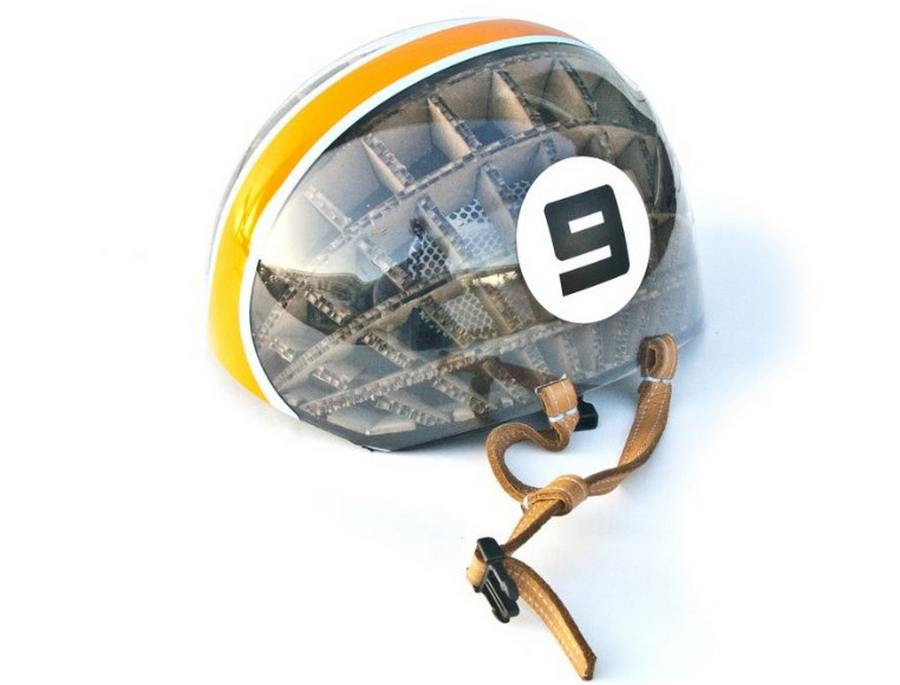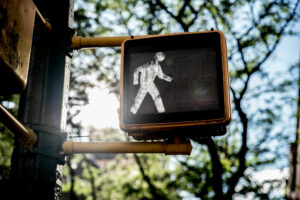Cyclists in Europe now have another helmet option to help protect against concussion and brain injury.
The Kranium cardboard helmet is the brainchild of London designer Anirudha Surabhi. Surabhi came up with the idea after a bike accident left him with whiplash, a concussion, and a mangled helmet. He figured there was a better way to protect the brains of cyclists.
Other concussion-reducing designs include the Hovding airbag helmet that deploys in an instant to cover and protect the head in the event of a crash and the MIPS helmet that mimics the brain’s cerebrospinal fluid to absorb energy on impact.
The idea for a cardboard helmet came from the natural world. Surabhi was inspired by the physiology of the woodpecker. Every time it pecks, he explains, a woodpecker sustains the same amount of force as a person crashing at 50mph. But the woodpecker’s brain is protected because its skull and beak are completely disjointed. In the middle is a soft corrugated cartilage that absorbs the force from the bird’s constant pecking.
Surabhi’s design uses intricately engineered paper that mimics the corrugated cartilage between a woodpecker’s skull and beak. It’s a double-layer of honeycombed paper that is cut and constructed into a functioning helmet.
“What you end up with is tiny little airbags throughout the helmet,” says Surabhi. On impact, each mini airbag pops all the way to the bottom preventing the helmet from cracking. “That’s what absorbs the energy,” he explains.
The website claims the Kranium helmet absorbs three times more force than a regular polystyrene helmet. It also meets European standards.
Additional perks:
- It’s waterproof and sweat-proof thanks to a special coating over the paper, and an acrylic outer shell.
- It’s sustainable and made from recycled materials.
- It’s lightweight, 250g lighter than a conventional bike helmet.







